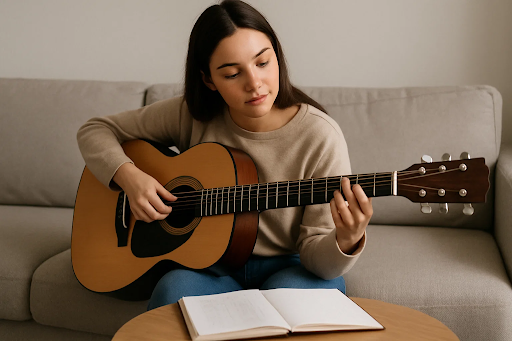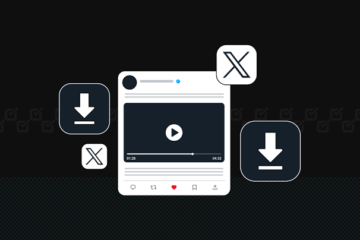Music classes are often associated with little children or teenagers. It’s usually the little ones testing your patience with their first experiments on piano or violin practice.
Indeed, many people start learning musical instruments in their early childhood. However, those who stopped or had never started can always come back or begin from scratch. Why? Because music is available for all ages!
Although adults often tend to find excuses, there are still reasons to bring music into their lives. It’s the opportunity to find a new hobby, improve mental well-being, and become part of the inspiring community of musical enthusiasts.
Let’s explore what’s exciting about learning a musical instrument at an older age and what benefits it can bring.
Can an adult beginner still succeed?
Many believe that to achieve real success in what you are doing, you need to start early. However, everything depends on your goal. Running a small band? Performing occasional home recitals? Inspiring your family members? Some practice and dedication will give you enough skills to attain this at any age.
Adults have a more mature approach to the learning process. It carries its benefits and can lead you to faster results. Several proven factors characterize adult learning:
- Greater consciousness and desire for personal growth and self-improvement
- A wealth of past experiences and knowledge
- Stronger determination and self-organization
Armed with these assets, adults can master new skills like playing a musical instrument and excel in them.
Addressing challenges
Admittedly, adult life is full of tasks and responsibilities. Every day, we have plenty of duties that take up most of our time. Many hide behind the disbeliefs, such as “it’s too late,” or “people will laugh at me.”
How to encourage yourself, if you feel the desire to play but those barriers ward you off?
- Music is a journey rather than a destination. Don’t strive to become an ideal performer, but enjoy the new experience and have fun.
- Choose the right instrument. Your passion is your guide. Try different instruments and ask for expert advice in stores like Everest Music to select what you love.
- Join the musical community. Where to find supporters? For instance, Everest Music unites musical professionals and teachers, who can share their experiences and give you lessons. You can meet other players in your classes and make interesting acquaintances.
- Split your journey into small steps. Whether it’s mastering a digital piano keyboard, a drum kit, or an electric guitar, move gradually and set small goals. Once you take the first step, the rest of the pathway will be easier.
How can playing a musical instrument benefit an adult beginner?
Greater socializing opportunities
Living an active social life and belonging to the community are important for a person’s overall wellness. As we get older, however, our interactions often fade. Attending music classes can significantly diversify your social life. You enter the circle of musical enthusiasts, learners, and teachers, which can further expand, bringing new, exciting acquaintances.
Better physical shape
Although playing an instrument won’t make you an athlete, it can still enhance physical well-being.
- Improved coordination. When playing the piano, drums, or electric guitars, you need to control the simultaneous work of your hands, fingers, and even feet. This enhances motor skills, turning on the respective brain parts.
- Better posture and balance. Wind and string instruments require appropriate body position, strengthening core muscles, and improving stability.
- Finger strength. Regular exercise helps to preserve hand flexibility and finger agility.
- Greater breathing and lung capacity. Wind and brass instruments train controlled breathing and reinforce lung function.
Mental health and cognitive capacity
Music can heal your brain and improve your cognition. When you are playing music, your brain works harder and activates a range of sections, each responsible for a particular skill. Specifically, musical activity reinforces memory, analytical skills, listening, speaking, and more.
Mental health and music are intrinsically intertwined. Apart from giving you a creative charge, playing or listening to your favorite piece can reduce stress, anxiety, and depression, bringing delight and serenity.
Joy and relaxation
Adult life is filled with work, responsibilities, and duties. However, even when overwhelmed with tasks, we need to take a break from time to time and do what we love. If your passion is music, grant yourself this pleasure to ignite your creative sparkle.
This will not only relieve your everyday stress but also drive self-expression and revive your curiosity for fascinating discoveries.
You are never too old to learn
Forget about your age and think of new experiences. As long as you feel the thrill of new opportunities, you are still young enough to learn.
Your reward won’t take long. Music lessons sharpen the mind, train the body, and fill your everyday routine with joy and creativity. Your age? Don’t count the years; rather, appreciate added wisdom, insights, and motivation to keep you on track.
Nothing should stop you from pursuing your dream. Whether you are old or young, let music enrich your life. Find the right teacher, like-minded colleagues, and enjoy every tone of your journey.
Keep an eye for more latest news & updates on Gossips!




